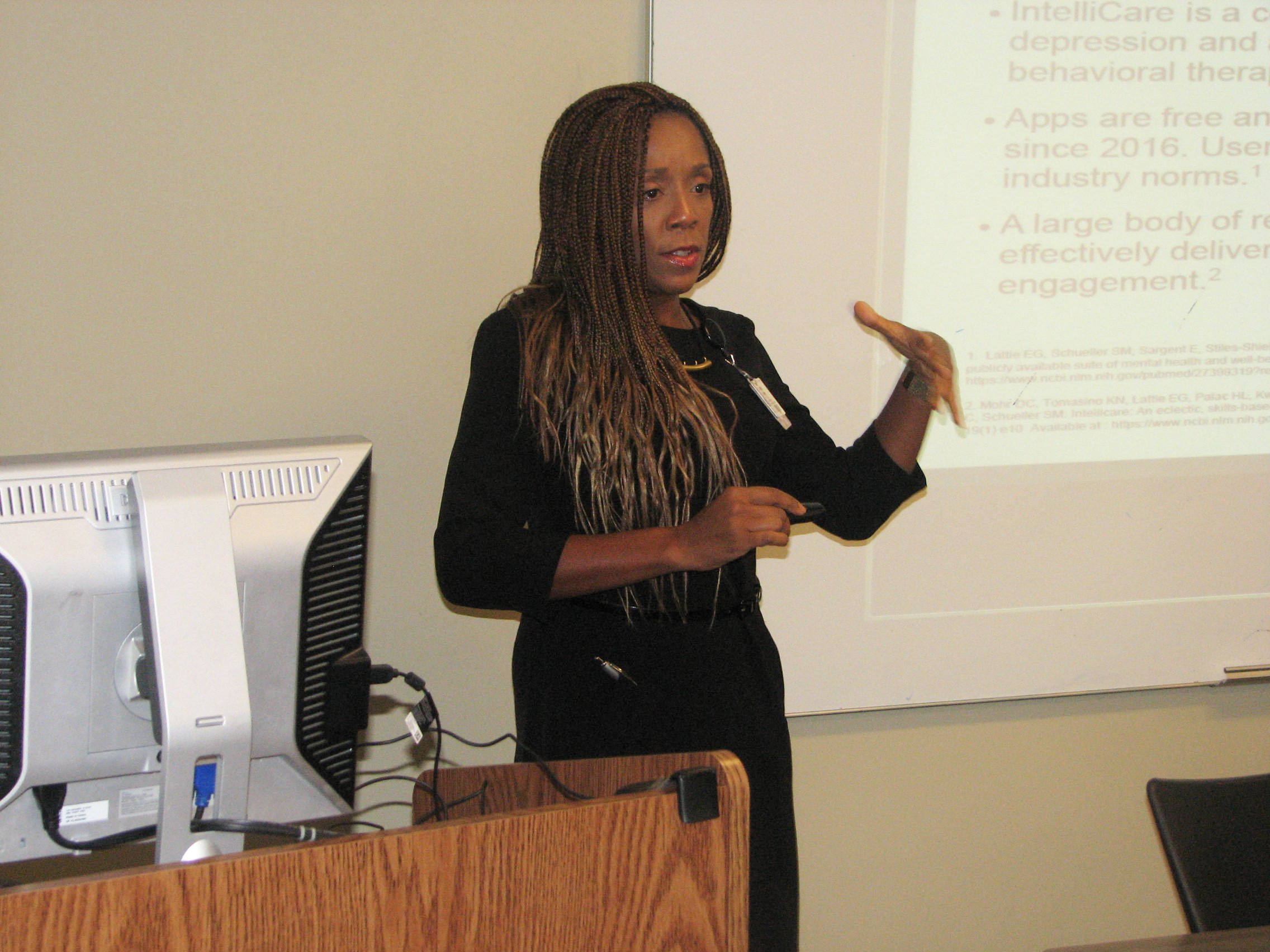View Larger Image

Carolyn Greene, Ph.D., led the team of UAMS researchers who conducted the study.
Depression, Anxiety For Many Relieved with Free Cell Phone App, Researchers Find
| A cell phone app designed to treat depression showed a dramatic reduction in symptoms compared to those who relied on other methods or received no treatment at all, according to a recent University of Arkansas for Medical Sciences (UAMS) study.
The results of the study were published earlier this month in the American Medical Association’s JAMA Psychiatry journal.
The Intellicare app was developed by a research team at Northwestern University and tested by participants recruited by UAMS researchers led by Carolyn Greene, Ph.D., of the UAMS Psychiatric Research Institute’s Center for Health Services Research.
Intellicare is actually a suite of apps that use interactive design and tasks to lead patients through cognitive behavioral therapy exercises to treat depression and anxiety.
Participants included 146 Arkansans of varying age, ethnic and financial backgrounds who were referred to the study after taking a standard depression screening.
Data from Greene’s study showed that people using Intellicare had significantly faster improvement and greater reductions in depression and anxiety compared to those who did not use the app. Fifty-nine percent of those with depression and 57 percent of those with anxiety reached a full recovery and were still recovered through a four-month follow-up period.
“None of the people involved were already receiving therapy for depression,” said Greene, a clinical psychologist. “For the eight weeks they relied on the apps, some helped them recognize negative thoughts while others offered relaxation exercises. The only human interaction they had was with the coaches who were texting them to help them meet specific goals.”
Greene worked with researchers at Northwestern to analyze the data collected during the study. She is encouraged by the users’ response to the apps and hopes they will be beneficial during health crises like the current COVID-19 pandemic.
“Some people are always going to need to be seen by a therapist in person, but even before the coronavirus, there were not enough people to care for them,” said Greene. “There are so many barriers to care for people with depression, including living in a rural area. The Intellicare suite is free, it’s easy to use and they can do it on their own, which makes it that much more important.”
This project was supported by the UAMS Translational Research Institute, Clinical and Translational Science Award U54 TR001629, through the National Center for Advancing Translational Sciences at the National Institutes of Health.
UAMS is the state’s only health sciences university, with colleges of Medicine, Nursing, Pharmacy, Health Professions and Public Health; a graduate school; a hospital; a main campus in Little Rock; a Northwest Arkansas regional campus in Fayetteville; a statewide network of regional campuses; and eight institutes: the Winthrop P. Rockefeller Cancer Institute, Jackson T. Stephens Spine & Neurosciences Institute, Harvey & Bernice Jones Eye Institute, Psychiatric Research Institute, Donald W. Reynolds Institute on Aging, Translational Research Institute, Institute for Digital Health & Innovation and the Institute for Community Health Innovation. UAMS includes UAMS Health, a statewide health system that encompasses all of UAMS’ clinical enterprise. UAMS is the only adult Level 1 trauma center in the state. UAMS has 3,485 students, 915 medical residents and fellows, and seven dental residents. It is the state’s largest public employer with more than 11,000 employees, including 1,200 physicians who provide care to patients at UAMS, its regional campuses, Arkansas Children’s, the VA Medical Center and Baptist Health. Visit www.uams.edu or uamshealth.com. Find us on Facebook, X (formerly Twitter), YouTube or Instagram.###